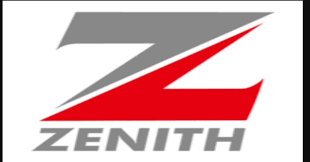
Nigeria Value-Added Tax (VAT) Ruling, Economic Impacts, Challenges and Prospects
Value-added tax (VAT), as the name implies, is a type of consumption tax that is levied on products and services. It is called value-added tax because it is levied at any point where value is added to a product or service from start to finish. It is levied at a percentage of the cost of the product or service.Information Guide Nigeria
If a producer of raw materials sells his product to a manufacturer, the tax is levied. By the time the manufacturer finishes his product and sells it to the wholesalers, the tax is paid. By the time the wholesaler sells the product to the retailers, the tax is added. By the time the retailer sells the product to the final consumer, the tax is added hence, the name value-added tax. It is a multi-stage type of taxation on products and services.
👉 Relocate to Canada Today!
Live, Study and Work in Canada. No Payment is Required! Hurry Now click here to Apply >> Immigrate to CanadaRead Also:10 Economic Impact of IPOB’s Sit-at-Home Order in the South East and Nigeria in General
Economic Impacts of Value-Added Tax
On the side of the federal government, the value-added tax is a great advantage. It generates heavy revenue for the federal government.
The government finds it easier to collect value-added tax than income tax or sales tax. As of 1986, the federal government was collecting sales tax. Nevertheless, the government was not satisfied with the amount of money that the sales taxes were generating. This made the government enact the VAT Act Number 102 in 1993. Therefore, the Nigerian government had been collecting VAT since 1993.Value-Added Tax
VAT is collected by most European countries. Countries like the United Kingdom, Austria, Kenya, and South Africa all go by VAT. Research shows that, of all the countries that collect VAT, Nigeria is the lowest.
On the side of the consumer, VAT is a problem. It is a problem because it is flat-rate taxation. The poor pay as much as the rich. VAT is not like income tax where the rich pay higher while the poor pay less.
Though VAT is levied at different stages of production, the final consumer bears the blunt. Every payment comes down to the final consumer.
The economic impact of VAT on the states and local governments depends on the sharing formula. If the federal government collects, VAT, the states, and the local governments also collect VAT, multiple taxation results. The federal government collects VAT. The federal government then shares the generated revenue with the states and the local governments.Fed Poly Offa ND Part-Time Admission List 2021/2022 Is Out
Read Also: 10 Roles of Agriculture in Nigeria Economic Development
👉 Relocate to Canada Today!
Live, Study and Work in Canada. No Payment is Required! Hurry Now click here to Apply >> Immigrate to CanadaChallenges of Value-Added Tax (VAT) in Nigeria
Value-added tax has so many challenges in Nigeria. In other parts of the world, the value-added tax is not new. In Nigeria, VAT is still very new. Therefore, the challenges of value-added tax in Nigeria include the following:
1. Awareness
Many people in Nigeria are not aware of value-added tax. They are aware of the old system of taxation: income tax and sales tax. As for value-added tax, they are not aware.
Therefore, the federal government should create mass awareness. The masses should be made to know all about the value-added tax and the reasons it was introduced.GCE Past Questions and Answers
2. Fraud
The collectors of the tax can decide to defraud the federal government. This will make the government not get the revenue that is intended from the tax.Npower recruitment
3. Tax Evasion
Those who produce value-added taxable goods may not make themselves known. The same thing goes for those who render value-added taxable services. They may not be willing to pay the tax. Some consumers, too, may not be willing to buy value-added taxable goods for them not to pay the tax.dollar to naira rate
4. Federal Inland Revenue Service (FIRS)
At present, the Federal Inland Revenue Service is responsible for the collection of the value-added tax. The possibility of it not having the required technical equipment for its operations is there.
Since VAT is new in Nigeria and different from other forms of taxation, adequate training is needed. The possibility of the Federal Inland Revenue Service not having qualified personnel who will handle its operations is feared.
The records, too, may not be well kept. Lack of good records can make the government lose money.
Read Also: The Role of Cashless Policy in the Development of Nigerian Economy
5. States and the Local Government Areas
The states where value-added taxable goods are being produced may not be ready to remit the revenue generated to the federal government. The same thing goes for the local government areas. They may want to keep the money to themselves.WAEC result
6. Prospects of Value-Added Tax in Nigeria
No country can succeed without money. The federal government needs money for infrastructural development. One of the major ways the federal government can generate revenue is through tax collection. All Nigerian citizens should know this. The federal government cannot be a producer of goods and services that the citizens need. Other people are to produce these goods and services. It is then, the duty of the government to collect tax from them. The government will then use the money to provide the amenities that the citizens need.
Thus, with proper awareness, Nigerians will be very ready to pay any value-added tax. The federal government is wise. Not all goods and services in Nigeria are value-added taxable. The goods that are value-added taxable are:
- Goods manufactured in Nigeria
- Goods assembled in Nigeria
- Goods imported into Nigeria
- Value-added taxable services include all professionalsJAMB form
Read Also: 10 Solutions to Insecurity in Nigeria
Goods exempted from value-added tax include:
- Medical products
- Basic food items
- Educational materials and levies
- Baby products
- Agricultural products and tools
Services that are exempted from value-added tax include:
- Medical services
- Community Bank services
- Educational services
- Private transactional services
Looking at the list above, you will agree that all those who engage in the value-added taxable services are fit to pay the tax. Refusal to pay the tax is being unfair to the government.
The government has exempted so many goods and services from the value-added tax. For instance, those who engage in agricultural services are not expected to pay value-added tax on their services. The same thing goes for those who produce baby products. Babies cannot pay taxes. Therefore, their parents are exempted from paying value-added tax on the products their children use.
In this wise, the government is very fair to all Nigerians. Anybody importing goods into the country should be able to pay the value-added tax levied on such importations. Anybody buying imported goods should also be able to pay the needed value-added tax.
All manufacturers should be able to pay the necessary value-added tax on their goods. All buyers of manufactured goods should also be able to pay the value-added tax.
Thus, with the cooperation of all Nigerians, the federal government is very likely to succeed in the collection of value-added tax in Nigeria.JAMB Result
Read Also: 6 most common causes of road accidents
Conclusion
The federal government needs money to succeed. This money comes from the taxes that the citizens pay. Therefore, for the Nigerian government to succeed, value-added tax should be paid. Help the government to help you.
Check and Confirm: How much is Dollar to Naira today Pounds to Naira today








